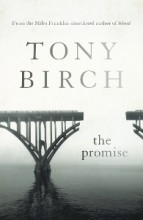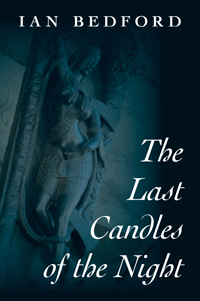Michele Seminara reviews “Fixing the Broken Nightingale” by Richard Allen
Fixing the Broken Nightingale
Richard Allen
Flying Island Books (2013)
Reviewed by MICHELE SEMINARA
Fixing the Broken Nightingale, Richard Janes Allen’s tenth poetry collection, is a small treasure of a book – one you might pop into your bag and dip into at idle moments for bursts of inspiration, contemplation or solace. Indeed, the physical design of the book (it’s part of Flying Island’s petite Australian Pocket Poets Series) recalls a more romantic time when poetry was indeed carried and savoured in this way; while the title – evoking Keats’s ‘Ode to a Nightingale’ – suggests that similar themes of mortality, bliss, suffering and the power of words to save us will be explored.
Allen’s background as a yoga teacher and the influence of eastern spiritual traditions are immediately obvious in this collection, which is divided into five sections plus an epilogue and a prologue – where we are invited to ‘Step with me now’ into an ‘eternal moment’, one which paradoxically ‘cannot last forever’. The poet begins by deftly exploring the ‘insanity’ which we are ‘indigenous to’ (21) – the ‘Natural Disasters’, as the first section of the book is entitled. Here we are presented with small, humanistic disasters – spider-webs that entangle us, broken glass waiting to slash our tyres – in a series of glistening vignettes which explore how our everyday moments and actions are interrelated. In the whimsical poem ‘how many umbrellas or love letters’, the poet muses on the fate of his lost umbrellas, imagining that
… these
randrom forgetfulnesses may have been the major contribution of my
life, popping up in the lives of others like the tips of islands emerging
in a world where the sea levels are actually dropping to save beautiful
but bedraggled shipwrecked wayfarers in a lost play by a man still
named Bill.
It seems that in Allen’s interconnected world there is no option of remaining separate, and what first pulls the speaker out of the illusion of himself and into the ‘connection’ he longs for is love; or perhaps, more accurately, intercourse (in the fullest sense of the word). In ‘Perils of Unfindability’, the speaker fears that if he fails to hold back his heart ‘a seismic event / of epic proportions’ may seep through ‘every corner of the eco-system of my life’. But of course, it will anyway, and in the second section, ‘Unanswered Questions’, the inside and the outside merge – ‘I was vibrating / inside / your room’ (37) – as boundaries between ‘self’ and ‘other’ are probed:
I feel like
I have lost something
and am wondering
if I’ll find it
inside you
I am hoping
a part of me
will find it
somewhere in the waters
of you
(‘13 Acts of Unfulfilled Love’)
Here the poet, as spiritual seeker, searches for the source of eternal bliss, actualising a temporary nirvana through the union of male and female (a method reminiscent, once again, of Eastern spiritual traditions).
Moving us further into territory that is both Keatsian and Eastern in flavour, the third section of the book, ‘Occasional Truths’, explores themes of ageing, change, loss and death. The poems here focus in and out on moments in space / time that are always happening ‘now’; everything is viewed as being in a state of flux and interconnection. A standout poem, ‘Kokoda’, functions as a type of poetic ‘breathing meditation’, with Allen using the breath (as it is used in yogic practise), to yoke us to the only time, the ‘now’:
I breathe in this moment is
the same as any other
I breathe out beneath every action, every situation,
the sameness of the moment
The same breath, and technique, is also used to unite us to each other:
I breathe in we are the same
my moment is your moment
your breath is my breath
my blood is your blood
I breathe out all that separates us
is the illusion of time
the illusion of life
the illusion of death
Similarly, ‘Abiding’, the final poem in this section, resembles a classic Buddhist meditation in which one visualises oneself surrounded by all living beings (whilst cultivating a view of separation as a mere matter of perspective), in an attempt to equalise the strength of one’s feelings towards others.
It’s as if those who you knew
are in the foreground,
and those who you knew about
are in the middle ground
and those who you didn’t know
are in the background.
And that’s everywhere
you look.
For a book so concerned with the spiritual, it is interesting that not until the fourth section, ‘Flickering Enlightenment’, is the term ‘God’ explicitly used, with God’s ‘fragile’ people presented as ‘vessels / For the pouring / Of the spirit’ (81). In ‘A Poem For Other People / As I Have No Doubts Or Regrets’, one feels that the poet is experiencing his ‘dark night of the soul’, as he explores aspects of the human psyche which ‘wake you in the middle of the night’. Now, in this poetic search for ultimate meaning, the poems become less visceral, more subtle, as we head toward the ‘borders’ beyond which words cannot take us:
Here it is. The final gate.
When you pass this gate no one will know
that you’ve passed this gate or where you’ve gone
and soon it will be forgotten that you ever existed.
(‘Armistace’)
As with so many of the poems in this collection, here, in ‘Armistice’, the unusual layout of the poem expresses physically what words cannot: as the words become sparser and sparser, they frame the negative space through which the poet seeks to disappear. This technique is taken even further in the disappearing poem, ‘Chimera’, where words –
like a kind of heavy water that must be
evaporated leaving only a mist
with no more substance
than the wisps
of a
– are abandoned all together. Like a spiritual teacher attempting to point the way to liberation, the poet strives to articulate that which is beyond conception and therefore cannot be expressed through the conceptual tool of words. This is a conundrum Allen solves to great effect by manipulating the physical form of the poems on the page; perhaps his background as a dancer is also at play here.
Finally however, Allen, like Keats in ‘Nightingale’, must return from his flight of fancy to the realm of the mortal, and in the last section of the book, ‘A Scheme for Brightness’, he does so, but is left asking, in ‘The Neverness of Speech’, what is the point of speaking, striving, when:
… love
vibrates at a frequency
outside of the range
of what we
normally can hear.
The answer emerges in ‘A Scheme for Brightness’, a bird-shaped poem whose form suggests that Allen is flying on both Keats’s ‘viewless wings of Poesy’ and the dual wings of compassion and wisdom said to be necessary for reaching enlightenment. Here, the speaker, having had everything ‘stolen’, his identity stripped so that ‘It is hard to say what remains’, sits ‘on the edge of infinity’ searching for something to make him ‘believe that the / human race is worthwhile after all’. Having mentally travelled to the furthest corners of the universe, Allen now returns to his normal consciousness, his desire to connect, through words, calling him back – in the Epilogue – to the ‘Forgotten Nectar in the Sleeper’s Cave’: ‘I will wake up to poetry once more’ he proclaims, because ‘In this dark, my only candles are – the poets’(105).
This grand poetic quest for unity, for connection, now ends – as another poetic great, T. S. Eliot, in Four Quartets, told us it must – ‘where we started’, in a return to the union of male and female, in:
… the memory of our first kiss
that moment
when we tasted
in that wet and sparkling fuse
in that dewy firecracker
a few flashing drops
from the blazing river of the Soul
(‘Forgotten Nectar in the Sleeper’s Cave’)
While poetry cannot offer salvation, it can, Allen suggests, offer solace. The ‘Nightingale’ may be broken, yet like the poet, he still sings, and perhaps his song is all the more beautiful for being fractured.
MICHELE SEMINARA is a poet and yoga teacher from Sydney. Her writing has appeared in Seizure, Bluepepper, Tincture Journal, Regime and Verity La. She is managing editor for Verity La.







